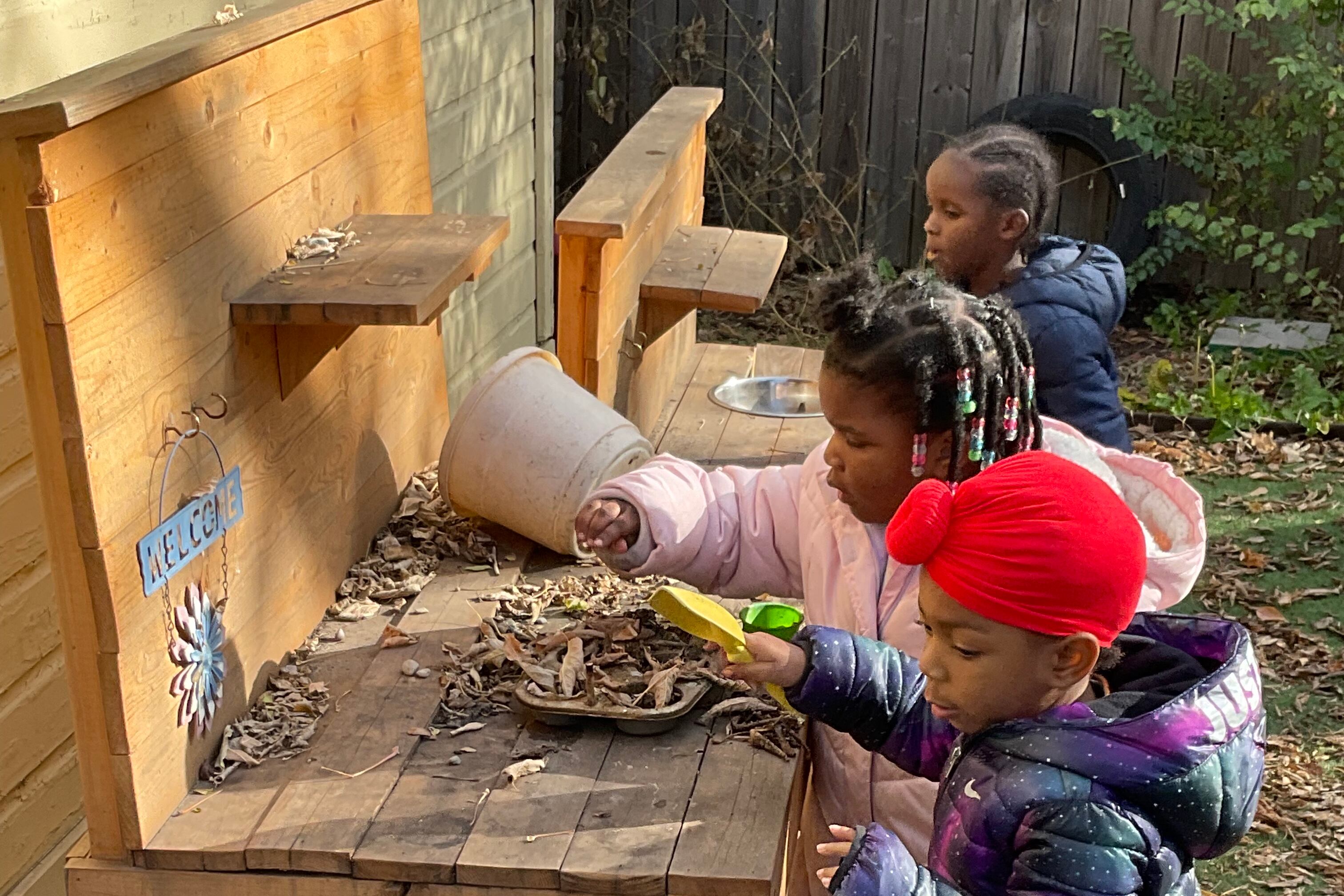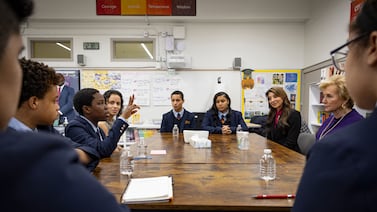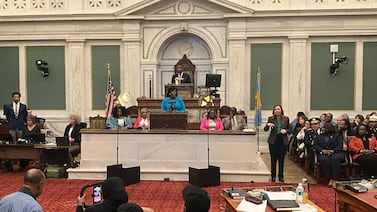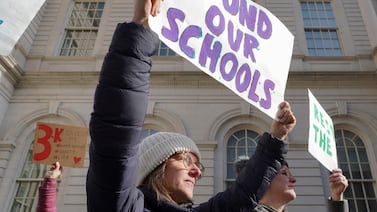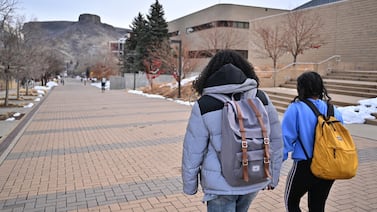Michigan’s free, high-quality preschool program has long operated exclusively in classrooms of 16 students. Now Gov. Gretchen Whitmer wants to find out if the program would work in smaller, home-based settings, which are more accessible to many families.
A proposed pilot program is part of Whitmer’s plan to use federal relief funds and stronger-than-expected state revenues to invest more in education and public health.
But Republican lawmakers hammering out budget proposals have instead proposed tax cuts and smaller spending increases on education.
The GOP-led Senate passed a budget proposal on Wednesday that calls for spending $62.1 million less on preschool and child care than Whitmer proposed, and it leaves out her pilot project to expand home-based care.
The outcome of their budget negotiations will have a large impact on early childhood education in Michigan.
Whitmer’s proposed preschool pilot would provide $5 million to try out the state’s preschool system — known as the Great Start Readiness Program — in home-based day cares that have long been excluded from the program.
Advocates and providers say the pilot would help the Great Start Readiness Program reach more students as the program aims to expand using federal COVID funds. At the same time, they hope to counter the view that home-based providers can’t match the quality of larger child care centers.
“It would give us a chance to show that we’re out here kicking butt just like the center-based providers,” said Kai Young, who operates Squiggles & Giggles Child Care out of her home in Detroit. Young has been in business for 29 years and her program has a perfect 5-star quality rating from the state.
Her reaction to the prospect of participating in the pilot: “Where do I sign up?”
But the GOP-led House and Senate didn’t include funds for the pilot in their budget recommendations.
Whitmer and GOP lawmakers agree that the state should spend an additional $121 million to keep the Great Start Readiness Program funding at its current levels, replacing one-time federal funds that were used to expand the program during the pandemic.
Beyond that, however, GOP leaders nixed several of Whitmer’s early childhood proposals in their draft budgets, including:
- Increased funding for the Great Start Readiness Program (separate from the at-home pilot) by $33 million.
- An extra $9.5 million to support child care providers.
- An extra $7.1 million for Early On, which supports children ages up to age 3 with disabilities.
- $7.5 million to expand enrollment drives for early childhood programs.
Wayne Schmidt, Republican chair of the Senate committee on education appropriations, didn’t immediately return a request for comment.
Early childhood education has often enjoyed bipartisan support in Michigan. Matt Gillard, president of Michigan’s Children, a nonprofit advocacy group, said he believes some Republicans support aspects of Whitmer’s preschool and child care proposals.
“It’s disappointing to see the legislature come out with what we view as negotiating positions masquerading as serious budget proposals,” he said. “They’re more interested in setting them up for tax negotiations than having a thoughtful discussion of these proposals.”
Whitmer and legislative leaders will negotiate the budget over the next several months, with the aim of finishing the process over the summer.
Koby Levin is a reporter for Chalkbeat Detroit covering K-12 schools and early childhood education. Contact Koby at klevin@chalkbeat.org.

